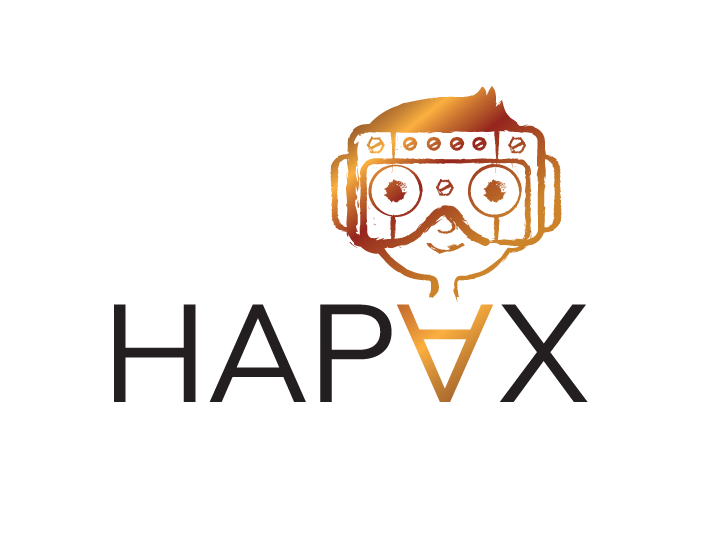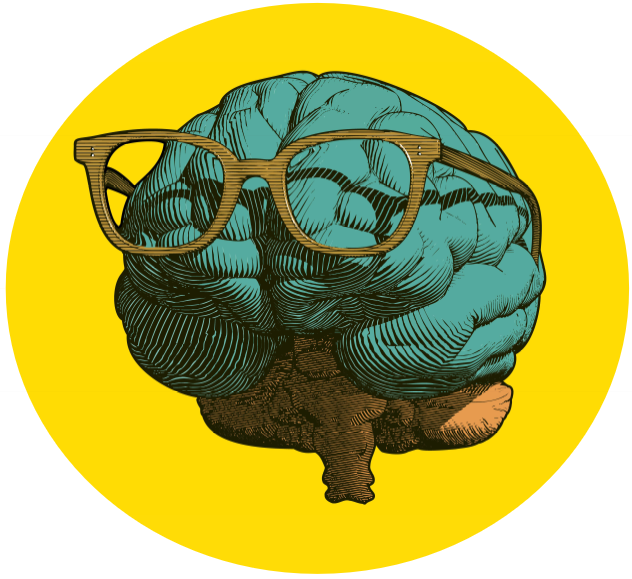How does he feed his happiness?
Here is a very personal sharing. I will tell you about my inner world and where I am in my infinite reflections. This text aims to share feelings and ideas that I hope will also speak to you. Perhaps you will have very different perceptions of high potential, and that’s fine. Our personal world is always a reflection of who we are and I present mine to you. In what I have understood of high potential over the years, which has a unique impact on each of us.
I often compare high potential to fire. Fire can be wonderful. It warms us, enlightens us and brings a serene atmosphere. It has allowed humanity to evolve and protect itself. A flame on a candle invites gentleness, reflection and calm. But fire, if poorly controlled, can greatly destroy, burn us and become uncontrollable.
Like fire, high potential can be a source of great happiness and many passions. But misunderstood and especially used in the wrong way, intelligence can become a double-edged sword. Sometimes we overthink. We question ourselves. We can see the things of this world in an overly negative way that takes us away from happiness and wisdom. Because intelligence does not necessarily come with the serenity that must be built and learned, always further in our life journey. Intelligence is not the source of happiness. However, it can promote it. I am convinced that the adult with a high potential is intelligent enough to learn to be happy. But like anything else, we have to learn and it doesn’t necessarily have to be taught in books.
What is a happy HP adult?
Here is some of what I have understood in my life in the face of giftedness. Whether it’s through my own experiences but also those of my gifted adult clients. Without pretending to master absolute understanding, perhaps these reflections will bring you as much as they have allowed me to progress.
The 15 rules for being a happy HP
Rule #1: Never stop marveling
Personally, I believe that the greatest gift that giftedness brings us is this infinite thirst for learning, discovering and wondering. If a client comes to me and this feeling has disappeared from their life, this is for me an important sign of an HP imbalance. Life is a continuous masterpiece. The HP adult must nurture this thirst for discovery and maintain it despite the routine of daily life. We must marvel at the infinitely large to the infinitely small. We must admire the arts and rejoice in music. You have to experience the wonderful pleasure of cooking. We must allow ourselves to admire the beauty of this world. Because passion and curiosity will always remain the energy that nourishes us and drives us forward. The HP adult finds happiness in a better understanding and a greater openness to this world that he is constantly discovering. He must even discover beauty in ugliness, for in darkness there is also light.
Rule #2: Take action
Thoughts are very interesting but become unproductive if they stay in our heads. The HP adult can think way too much! He comes to freeze in his life if he does not manage to use his reflections concretely. If we think too much, our thoughts can become torture, like a whirlwind of ideas that we overprocess and that end up haunting our nights. They can create dissatisfaction, even frustration and unnecessary anxiety.
The solution is action. All this intelligence must be able to flourish in nourishing and innovative projects. It must be directed in the fulfillment and discovery that always takes us further. I believe that the happy gifted adult must have a job that nourishes him. If this is not the case, he will be forced to pour his intellectual overflow into a series of projects outside of work, while constantly waiting for his days to end. He will experience boredom that will make him feel depressed in the long run. Which will inevitably put him to sleep. Work is not just a source of money. It must be a gateway where the gifted person can achieve his or her best and give the best of himself. If he finds happiness at work, the HP adult will be an investment for sure. And for all other things in life, get into the action. Bring out your full potential within yourself and make your thoughts real in the ways that inspire you the most!
Rule #3: Develop new skills
A pure high potential, that is to say that the person has no other particularity, will have a homogeneous intelligence as a whole. The person therefore has the potential to develop a multitude of varied interests and skills. The first sign of intelligence in my opinion is to have good abilities in general to adapt. To be able to deal with a wide range of different situations and to learn from them. Perhaps a challenge will not be within our reach until we develop the necessary capacities to do so. But identifying our skills to be acquired and developing them will certainly bring us closer to success. Any success requires steps of action and learning to achieve it. But being aware of what we have to learn will make it easier and more serene to move towards our ultimate goal.
The happy gifted is the one who continuously develops his abilities and who dares to get out of his comfort zones. Who looks in all directions, including those he has not yet discovered. Are you very Cartesian? Launch yourself into the abstract world. Discover psychology and human relationships, philosophy, art and imagination. Conversely, enter the world of science and logic. Are you too much in your head? Find yourself a physical activity or get cooking. HP balance develops when the entire brain is well nourished!
Rule #4: Understand our difference
The high potential being part of who we are, will inevitably come at a time in our lives when we will have to understand this particularity. It is essential to educate yourself, read about the subject and meet other adults like us. High IQ is only a small percentage of what giftedness is. High potential has a much greater impact on our lives than we think. It has a definite impact on our social relationships, on our vision of the world and of life in general. It often makes us hypersensitive whether at the sensory level, in the face of emotions and in our relationships with others. The way we operate can even stun the people around us. Giftedness regularly brings a form of loneliness that gives us the impression, although we are well surrounded, that we are alone.
Better understanding and appropriating our differences brings us great peace and acceptance of the world we live in. Our emotions will also be better experienced. We will then discover how to make more use of our strengths and potential. And as Gandhi said so well: « the greatest traveller is not the one who has circumnavigated the world ten times, but the one who has circumnavigated himself once ».
Rule #5: Pass on our knowledge
A great pleasure of the gifted is to share his knowledge. We like to get others to think, to think differently. When we do this with mutual open-mindedness, we often feel a form of nourishing energy that in turn leads us to other paths of reflection. I believe that the gifted adult has a role of messenger and thinker that is naturally in us. No matter what we pass on, if we put our heart, passion and open-mindedness into it, passing on our knowledge and ideas, which often come out of the box, will certainly stimulate us.
Rule #6: Live our passions
Giftedness creates passions. Because our thirst to learn, to take action and to discover cannot be met if this stimulating energy is not there. A dispassionate HP is often a person who, through his or her life story, has let this energy be extinguished. Like a fire that dies for lack of oxygen. HP passion often disappears because of the desire to mold into the norm or because the person has lost confidence in himself. Because she didn’t understand her differences or wanted to prioritize other aspects of her life. But like embers, the characteristics of high potential can be rekindled! We achieve this when we let our potential emerge without limits and without barriers. When we succeed in regaining our freedom of thought and creativity.
Rule #7: Accept and love solitude for the good it brings
Our gifted particularities inevitably lead us to sometimes need solitude. In order to be able to think, dream and learn, tranquility becomes necessary. Our sensory and cognitive overloads also mean that at certain times, only silence and calm bring us back to a state of well-being.
Loneliness gives us time to let our brain go at the speed it wants. Where no barriers or compromises are in front of us. Where we can search and create without always having to explain our intellectual process.
Several HP report that they regularly feel a sense of loneliness. Because our differences are important and although we enjoy being with others, we must adjust regularly to fit in. Sometimes at the cost of forgetting our own functioning. Despite our stimulating ideas, the majority bring us back to the norm and to what is expected of us. To the obligation to do like the others. Conversely, we often appreciate and value our creativity and our beautiful intelligence. But sometimes at the cost of being put on a form of pedestal that leads to a double-edged relational situation. That of being admired or valued for who we are, but at the same time of being unattainable. We can also unwittingly give the appearance of being a vain person who thinks he is better than others. Which nevertheless tears our hearts apart when it happens.
The solution is to have fun and collaborate to the best of our ability with others when the situation allows. While being aware of our differences and keeping them in mind so as not to give the feeling of being crushed to others. Because a determined and convinced HP can really disturb if he doesn’t know how to convey his ideas!
If we need to « nourish more » ourselves to be stimulated, we can always explore several other spheres that turn us on. And maybe we will be well surrounded for a while, to sometimes find ourselves alone in others. To move forward, however, we can’t always wait for others to follow us. Thinking outside the box implies moving away from what is already understood by everyone. If we accept to move forward towards other horizons, we accept the solitude that this journey will inevitably bring.
Rule #8: Forgive our mistakes, failures and imperfections
The gifted person must learn the importance of making mistakes in order to move forward. We tend to analyze ourselves too much and constantly question ourselves. As soon as we experience a failure or when we have made a mistake, we tend, as I often say, to stab ourselves. You know what I’m talking about? This feeling of incompetence and shame. Our hyperconsciousness plays tricks on us. But we don’t have to see ourselves as worse than we really are because we didn’t do the right thing or because we experienced a failure. Intelligence does not take away our humanity, in its beauty and in its imperfections.
Error is the absolute master of learning and self-development
Error teaches us to think more effectively.
Mistakes lead us to be more resilient, to react better in the face of difficulties.
Mistakes teach us to make efforts to succeed.
Error guides us in what we have to develop to become better.
The mistake allows us to correct ourselves and be better prepared for the next time.
Mistakes lead us to improve.
Error teaches us to solve problems more efficiently.
Error allows us to learn faster and more holistically.
Error makes us wiser by the experience it brings us.
The mistake leads us to be braver by teaching ourselves that the situation was not as serious and complex as we thought.
Rule #9: You have to understand that our emotional hypersensitivity does not mean taking what does not belong to you.
If you are an HP adult who is hypersensitive to emotions and others, you must learn to leave to others what does not belong to you. Emotions are simply information that guides us. They are like sensory information. That is to say, they indicate something that is happening within us and/or around us. But like any information, it must be well processed and useful. Emotions are sensations and not a permanent state. If we take them for what they are, i.e. information to be processed, we can understand them, accept to live them and above all, use them well.
Here is a small instruction manual that I teach to all my clients, regardless of their needs.
Step 1: Identify the emotion(s) I am feeling. I accept to feel it. And I let her go afterwards.
Step 2: Why do I feel them? What belongs to me and what belongs to others?
Step 3: What belongs to others, belongs to them! I don’t have to carry their experience.
Step 4: What information does the emotion give me? What is its message?
Step 5: You have to take action to resolve the situation, to learn, to move forward and/or to tell others what needs to be said in a constructive way.
Emotions are very important guides. Don’t suffer them anymore! Feel them simply to allow yourself to live them, to understand them and then put yourself into action.
Rule #10: Accumulated knowledge is useless if it is not used.
Reciting our knowledge to anyone who will listen is only a proof of our good memory. People playing the game of « who’s the brightest » is a sign of a lack of maturity in an HP person. Nor is reciting what other thinkers have contributed a sign of your intelligence. The intelligent person will often be discreet about this aspect of him. Using our intelligence well is to take action and adapt. To create and innovate. To help others in their own journeys if we believed we could accompany them positively. Being smart is not about wanting to pass on our beliefs to others, but rather about keeping an open mind so that you can listen to new points of view. The intelligent person does not have to prove that he or she is. She knows it, that’s all.
The knowledge we accumulate like information in encyclopedias can entertain us for a while. But if this knowledge remains only recorded information and does not allow us to move forward, like encyclopedias, it will remain on the shelves.
Intelligence must be used, nurtured, and become a source of creativity in all aspects of our lives. An HP adult who expects others to be fed, will unfortunately be disappointed by a wait that will never end. Freedom comes from oneself.

Rule #11: Learn to use our HP intuition
Sometimes we understand without knowing how we understood. I call this phenomenon our 6th sense. We have a form of thinking that « jumps from A to Z ». There are no other letters. When others ask us, we say it’s just obvious! We have understood, that’s all. It’s simple to understand, isn’t it?! How many times have I been told that « what is obvious to you, Rachel, is not necessarily obvious to others. » It took me many years to understand all that phrase meant. When I was younger, I developed a lot of frustrations, mistakenly believing that I was constantly dealing with intentional ignorance.
It was when I started to think about the letters that are between the A and the Z, that I understood the importance of slowing down and taking the time to explain my thinking more gently. To bring my ideas more delicately and gently. To sow seeds and nurture them rather than imposing my way of thinking. There is a time for everything and everything has its time. We must understand and assume our differences in order to be able to use them well without rushing or imposing.
Sometimes our brain understands without us even realizing it. We don’t know why we knew what had to be done. We just knew that. In these moments, we then have a form of drive that directs us towards a specific action or aligns us in a new direction. You have to listen to this intuition! The more I learn to listen to this famous intuition, the more I understand how much it is a source of discoveries and achievements. Intuition is often spontaneous. It cannot be scheduled. It can hardly be postponed. When it arrives, we have to listen to it, analyze it and go where it leads us.
Rule #12: Boredom is our form of depression.
Our brain is a Formula 1 formula. It is made to think quickly, to be stimulated and nourished. It’s designed to think outside the box. If our lives require us to constantly slow down, conform, and do repetitive things, we develop a form of HP boredom that feels like a feeling of depression. Our brains become slow, greatly lacking in motivation. We then look for a meaning to our life. We are discouraged even by thinking that our life will be a continuous repetition. Boredom extinguishes high potential. We cannot be Formula 1 if we are constantly trapped in traffic, in a normative system.
An HP adult must react when this feeling becomes too present in his life. That boredom sometimes happens is simply part of life. But when boredom becomes overwhelming, takes away all spontaneity, it’s high time to react!
The solution: Rekindle the embers of high potential! And tell yourself that it’s not necessarily the environments that need to be changed. Maybe it’s us who are not in the right place.
Rule #13: We don’t have to carry the weight of the world on our shoulders
Ah, this famous global hyperconsciousness! I don’t know about you, but I carried the weight of the world on my very small shoulders for a long time.
Human beings can be great in our best moments but be the opposite in our worst atrocities. We must forgive our humanity and understand that our collective conscience is on the move. The hyperconsciousness of the world we live in leads us to fear more than our heart can carry. I believe that it is healthy and wise to open up to our reality and face the truth. But developing fear and anger won’t change anything. The solution lies in gentleness and love. In the step-by-step accompaniment that opens the consciousness and the mind.
With maturity, I decided to use my great energy and willpower to make an impact where I have the power to do so. And as a matter of collective conscience, we must all move forward together. We cannot do it alone. But each person moves forward as best they can. And if she can’t do that, rather than getting frustrated, you probably need to help her. Because every human being aims for happiness and balance. If he can’t do it, probably the person doesn’t have what it takes to do it.
That said, if our conscience makes us see absurdities and atrocities, we must try to bring them out of the shadows. We have a duty to get our heads out of the sand and look at reality for what it is. To open minds according to the power we have to do so, because remaining silent only makes us accomplices in the situation. But to have a positive impact, you have to invite people to get their heads out of the sand and not twist them so that they do it.
Rule #14: Feel like you don’t belong in this world.
For a very long time, I had the impression that I was only an observer. As if I were looking at our world through a window. As if my thoughts, which I knew to be quite right, could not be shared. When I tried to do so, I regularly felt that a barrier prevented me from being heard. Because no matter what I said or thought, I always felt like I was looking in a different direction than others. Then came this feeling of loneliness that accompanied me for a long time. It didn’t matter that I felt alone, I preferred to continue on the path that seemed right to me.
I believe that a beautiful and extraordinary intelligence inevitably brings important differences. But it’s not others who have to change for us. We must understand who we are and develop our wisdom, because without it intelligence cannot be fully used. Once our wisdom is better developed, the time will then come when we will reach out to others in a more constructive way while respecting who they are.
No matter how adaptable you are, the feeling of being different will always be there. Our operation will always remain HP. Our vision of the world and our capacities for high potential will always make us special beings. But I like the difference. Because it is above all the one that marks us and that we remember the most. So let’s make sure that our difference is used so that our full potential can really be expressed.
Rule #15: Every HP has a life project
And to finish on this HP reflection, I would say that a gifted person must find at some point in his personal journey his life project. We all have a life project. I’m not talking about a « travel around Europe or have kids » type project. These are beautiful and stimulating projects, but they are not what we are talking about here. Each gifted person, when he or she achieves himself, ends up finding a path that attracts him or her more. A path that attracts him more than the others. Who, in order to go through it, asks for all the abilities that the person has developed or that he or she wishes to develop. A path that nourishes us as much as we give back to it. A path where we know we can make a difference. We know that we have found it when our journey along this path keeps pushing us to go even further.
We don’t have to go down in history to get there. The only criteria for a life project are to use all of our abilities, interests and passions. Our project must bring us the sense of accomplishment that we are all looking for. This project will allow us to find wisdom, pleasure, creativity and serenity. Through him, we will have the feeling that we have given all that we have to give. We will be proud of that. To conclude, I will quote Gandhi, this extraordinary man who in my opinion was certainly also gifted: « Be the change you want to see appear in this world ».




Leave a Reply